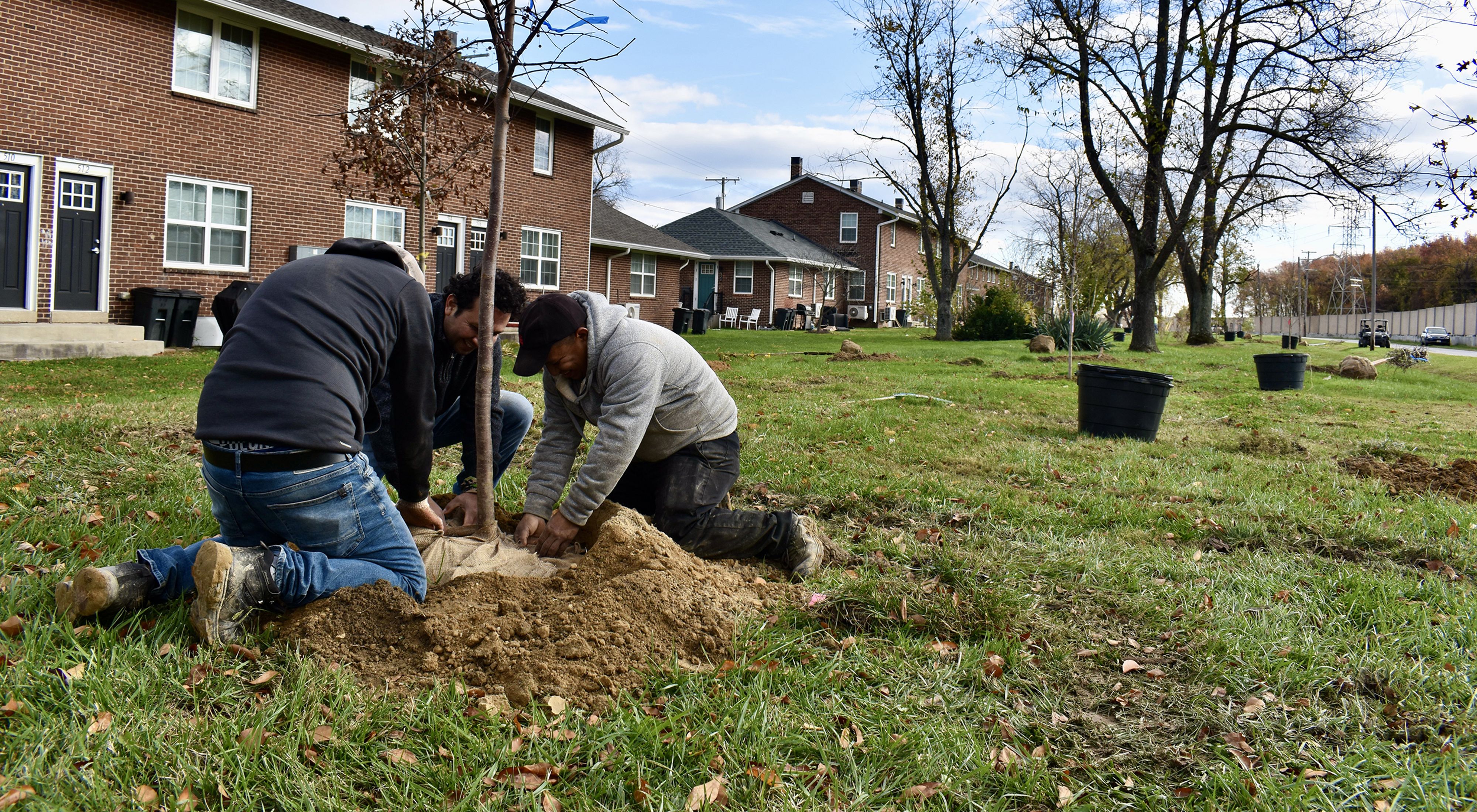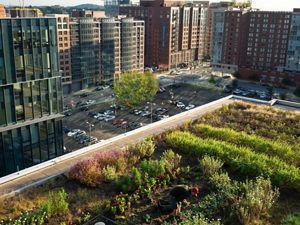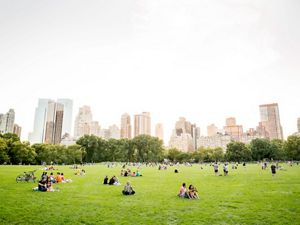Healthy Trees, Healthy Cities Program Supporting Urban Tree Health and Workforce Training Coming to Baltimore
National partnership program will kick off in Baltimore’s Turner Station neighborhood.
Media Contacts
-
Matt Kane
The Nature Conservancy
Phone: (323) 898-6510
Email: matthew.kane@tnc.org
The Nature Conservancy (TNC) announced today that Healthy Trees, Healthy Cities—a civic ecology program for monitoring urban forest health—will be launched in Baltimore thanks to funding secured through the 2023 federal budget.
Healthy Trees, Healthy Cities is a partnership between the US Forest Service and TNC that seeks to protect the health of our nation’s trees, forests and communities by engaging people in long-term tree monitoring and stewardship.
The $700,000 in funding was secured by Maryland Senator Chris Van Hollen, who is a member of the Senate Appropriations committee and sits on the Interior and Environment subcommittee. The senator identified a need for federal investments in forests in the Chesapeake region that could benefit people and nature in the watershed. TNC was consulted by the senator’s office for input on priority projects and encouraged to apply for federal funding through the US Forest Service’s State and Private Forestry program.
Quote: Senator Chris Van Hollen
Preserving green spaces . . . enhances the overall quality of life in our neighborhoods. This initiative will support that mission in historic Turner Station while providing workforce opportunities in the area of urban forestry.
The Healthy Trees, Healthy Cities program will benefit people and nature by supporting Baltimore City and County residents in monitoring and caring for urban trees, forests and forest patches that are planted as part of Maryland’s Tree Solutions Now Act.
“Preserving green spaces in our cities helps clean our air and prevent flooding as it enhances the overall quality of life in our neighborhoods. This initiative will support that mission in historic Turner Station while providing workforce opportunities in the area of urban forestry,” said Senator Van Hollen. "That is why I worked to secure federal funds for this program in Baltimore.”
“We want to extend our thanks to Senator Chris Van Hollen, as well as Senator Ben Cardin, for their roles in securing the funding needed to bring this project to Baltimore,” said Tim Purinton, executive director of the Maryland and DC chapter of The Nature Conservancy. “Trees play a crucial role in cooling our communities, cleaning our air and absorbing stormwater. They serve as food and shelter for wildlife and provide us with emotional respite in a fast-changing world. As our cities and their residents experience the increasing impacts of climate change, it is imperative that we monitor and protect the health of our urban forests.”
The Baltimore program of Healthy Trees, Healthy Cities will first launch in the Turner Station neighborhood—a low-lying, historically African American community in Baltimore that was founded in the 1880s and has been home to many notable figures, including Henrietta Lacks. Turner Station has also experienced more than a century of environmental injustice, which spurred the creation of the Turner Station Conservation Teams (TSCT) by longtime community members in 2006.
Last year, TSCT, TNC and its partners kicked off the Witness Trees project, a multi-year effort to support the community through on-the-ground conservation, intergenerational leadership, and capacity building and resilience planning. The Healthy Trees, Healthy Cities program will build on the success of the Witness Trees project and the state’s Tree Solutions Now Act, providing paid training and employment opportunities for community members to steward the newly planted Witness Trees grove and long-standing neighborhood trees.
The training will include urban forestry basics, rapid tree health assessments, on-the-ground smart-phone data collection and web-based project management. After launching in Turner Station, the program will be adapted to meet the needs of other communities and community partners in the Baltimore metro region.
To scale the program, TNC will host a series of listening sessions and knowledge exchanges with members of the state and local urban forestry community in late winter and early spring. A full plan for scaling the program in Baltimore is expected in the summer.
The Nature Conservancy is a global conservation organization dedicated to conserving the lands and waters on which all life depends. Guided by science, we create innovative, on-the-ground solutions to our world’s toughest challenges so that nature and people can thrive together. We are tackling climate change, conserving lands, waters and oceans at an unprecedented scale, providing food and water sustainably and helping make cities more sustainable. The Nature Conservancy is working to make a lasting difference around the world in 81 countries and territories (40 by direct conservation impact and 41 through partners) through a collaborative approach that engages local communities, governments, the private sector, and other partners. To learn more, visit nature.org or follow @nature_press on X.


